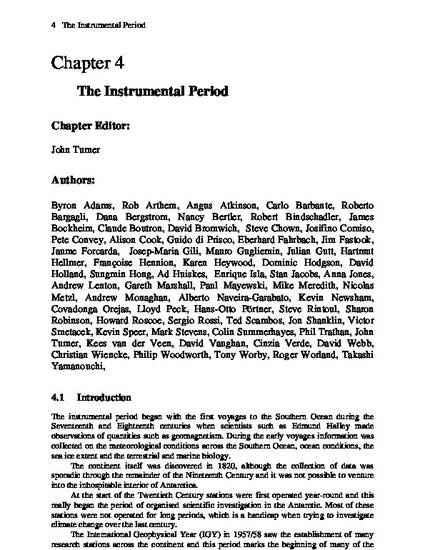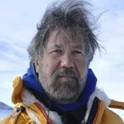
The instrumental period began with the first voyages to the Southern Ocean during the Seventeenth and Eighteenth centuries when scientists such as Edmund Halley made observations of quantities such as geomagnetism. During the early voyages information was collected on the meteorological conditions across the Southern Ocean, ocean conditions, the sea ice extent and the terrestrial and marine biology. The continent itself was discovered in 1820, although the collection of data was sporadic through the remainder of the Nineteenth Century and it was not possible to venture into the inhospitable interior of Antarctica. At the start of the Twentieth Century stations were first operated year-round and this really began the period of organised scientific investigation in the Antarctic. Most of these stations were not operated for long periods, which is a handicap when trying to investigate climate change over the last century.
Available at: http://works.bepress.com/paul_mayewski/19/

Adams, B et al, The Instrumental Period, chapter 4 in Antarctic climate change and the environment, Scott Polar Research Institute, Lensfield Road, Cambridge, UK: Scientific Committee on Antarctic Research, 183-298.